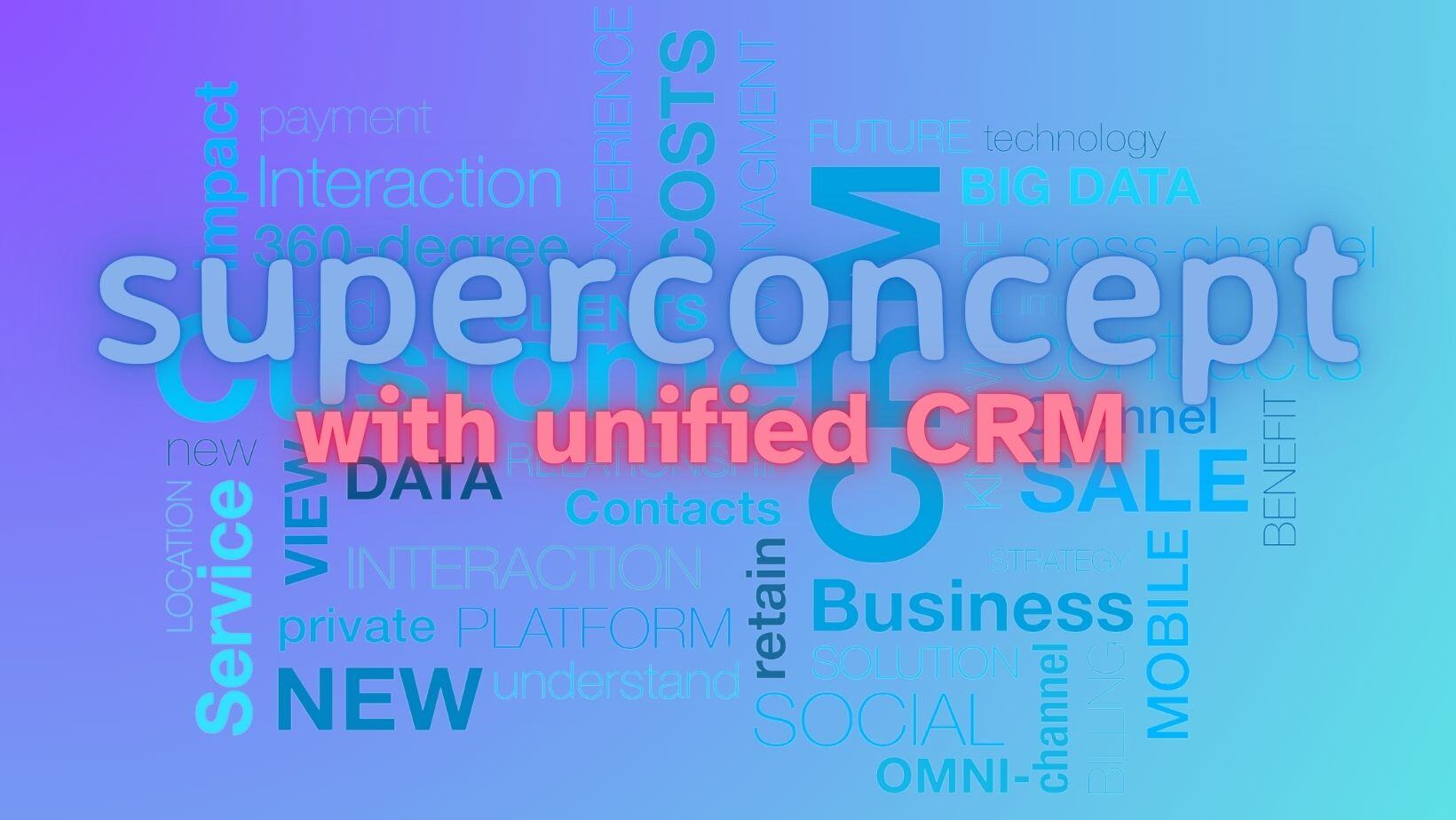Corporate culture is evolving rapidly in the 21st century, driven by technological advancements, changing workforce demographics, and shifting employee expectations. A company's culture significantly impacts its ability to attract, retain, and engage top talent. One of the key tools in this transformation is the Customer Relationship Management (CRM) system. Traditionally used for managing customer interactions and sales, CRMs are now being repurposed to enhance internal processes, focusing on employees as the primary customers. This blog explores the future of corporate culture and how CRM systems can make a significant difference in employee onboarding, engagement, retention, and performance, ultimately reducing turnover.
The Changing Landscape of Corporate Culture
Embracing Flexibility and Hybrid Work
The COVID-19 pandemic has accelerated the adoption of remote and hybrid work models. Companies are now more flexible, allowing employees to work from home or in a hybrid setup. This shift has changed the way organizations think about corporate culture, emphasizing trust, autonomy, and results over physical presence.
Diversity, Equity, and Inclusion (DEI)
Modern corporate culture increasingly values diversity, equity, and inclusion. Companies recognize that a diverse workforce brings varied perspectives, leading to innovation and better decision-making. DEI initiatives are no longer just a compliance issue but a strategic priority that shapes the company's culture and values.
Employee Well-being and Mental Health
Employee well-being and mental health have become critical components of corporate culture. Organizations are investing in wellness programs, mental health resources, and supportive policies to ensure that employees feel valued and cared for. A positive corporate culture promotes a healthy work-life balance, reducing burnout and increasing job satisfaction.
CRM Systems: An Overview
What is a CRM System?
A Customer Relationship Management (CRM) system is a software solution that helps businesses manage interactions with customers, streamline processes, and improve profitability. It consolidates customer information into a single database, making it accessible to various departments. Key features include contact management, sales management, workflow automation, and analytics.
Evolution of CRM Systems
Originally designed for sales and marketing purposes, CRM systems have evolved to support various business functions. Modern CRMs offer advanced analytics, artificial intelligence (AI), and integration capabilities, making them versatile tools for managing relationships and processes beyond customer interactions.
CRM as an Employee Relationship Management Tool
As companies recognize employees as their internal customers, CRM systems are being repurposed to manage employee relationships. This adaptation, often referred to as Employee Relationship Management (ERM), focuses on improving employee experience through better onboarding, engagement, retention, and performance management.
Enhancing Employee Onboarding with CRM Systems
Streamlined Onboarding Processes
Onboarding is a critical phase that sets the tone for an employee's journey within the company. A well-structured onboarding process helps new hires integrate smoothly, understand their roles, and align with the company's culture. CRM systems can streamline onboarding by automating administrative tasks, providing centralized access to necessary information, and ensuring consistent communication.
Personalized Onboarding Experience
A CRM system can tailor the onboarding experience to meet individual needs. By capturing and analyzing data about new hires, such as their background, skills, and preferences, HR teams can create personalized onboarding plans. This approach enhances the relevance of training programs, making new employees feel valued and supported from day one.
Monitoring and Feedback
Effective onboarding doesn't end with the initial orientation. Continuous monitoring and feedback are essential to ensure that new employees are adjusting well. CRM systems can facilitate regular check-ins, track progress, and gather feedback, allowing HR teams to address any issues promptly and improve the onboarding process for future hires.
Boosting Employee Engagement with CRM Systems
Centralized Communication
Engagement thrives on effective communication. CRM systems offer centralized platforms where employees can access important information, communicate with colleagues, and participate in company-wide initiatives. This transparency fosters a sense of belonging and keeps employees informed about the organization's goals and developments.
Gamification and Recognition
Gamification is a powerful tool for enhancing employee engagement. CRM systems can incorporate gamified elements, such as badges, leaderboards, and rewards, to motivate employees and recognize their achievements. Recognizing and celebrating milestones and contributions boosts morale and encourages a positive work environment.
Career Development and Learning Opportunities
Employees are more engaged when they see a clear path for career development. CRM systems can track employees' skills, interests, and performance, identifying opportunities for growth and development. Personalized learning plans and access to training resources help employees advance their careers, increasing their commitment to the company.
Improving Employee Retention with CRM Systems
Identifying Retention Risks
High turnover rates are costly and disruptive. CRM systems can analyze data to identify patterns and predict retention risks. By understanding factors that contribute to employee attrition, HR teams can proactively address issues, implement targeted interventions, and improve retention rates.
Enhancing Employee Experience
A positive employee experience is crucial for retention. CRM systems enable HR teams to gather feedback and insights into employees' needs and preferences. This data-driven approach allows organizations to create a supportive and engaging work environment, addressing concerns before they escalate and improving overall satisfaction.
Fostering a Strong Organizational Culture
A strong organizational culture is a key driver of retention. CRM systems help reinforce company values and culture by facilitating consistent communication, recognizing and rewarding desired behaviors, and promoting a sense of community. Employees who feel connected to the company's mission and values are more likely to stay long-term.
Driving Employee Performance with CRM Systems
Performance Tracking and Management
Performance management is essential for aligning individual goals with organizational objectives. CRM systems can track employee performance, set goals, and monitor progress. This visibility allows managers to provide timely feedback, identify areas for improvement, and support employees in achieving their targets.
Data-Driven Decision Making
CRM systems provide valuable insights through data analytics. By analyzing performance data, HR teams can identify trends, evaluate the effectiveness of training programs, and make informed decisions. This data-driven approach ensures that performance management strategies are based on objective evidence, leading to better outcomes.
Continuous Feedback and Coaching
Regular feedback and coaching are critical for continuous improvement. CRM systems facilitate ongoing communication between employees and managers, enabling real-time feedback and coaching. This continuous loop of feedback helps employees stay on track, develop their skills, and achieve their performance goals.
Case Studies: CRM Systems in Action
Salesforce: Enhancing Employee Experience
Salesforce, a leading CRM provider, uses its own CRM platform to manage employee relationships. The system integrates various HR functions, providing a seamless experience for employees. Features like personalized onboarding, career development tracking, and performance management have helped Salesforce create a supportive and engaging work environment, leading to high employee satisfaction and retention rates.
HubSpot: Fostering a Collaborative Culture
HubSpot, known for its inbound marketing and sales software, leverages its CRM system to foster a collaborative culture. The platform facilitates communication, project management, and recognition programs. By using CRM tools to streamline processes and enhance transparency, HubSpot has built a strong, collaborative culture that attracts and retains top talent.
Zappos: Prioritizing Employee Happiness
Zappos, an online shoe and clothing retailer, is famous for its unique corporate culture. The company uses a CRM system to prioritize employee happiness and engagement. The system tracks employee satisfaction, facilitates regular feedback, and supports personalized development plans. This focus on employee well-being has contributed to Zappos' reputation as a great place to work, with low turnover rates and high employee loyalty.
The Future of CRM Systems in Corporate Culture
Integration with Artificial Intelligence
The future of CRM systems lies in their integration with artificial intelligence (AI). AI can enhance CRM functionalities by providing predictive analytics, personalized recommendations, and automated decision-making. For example, AI can analyze employee data to predict turnover risks, recommend personalized development programs, and automate routine tasks, freeing up HR teams to focus on strategic initiatives.
Enhanced Employee Self-Service
Empowering employees with self-service capabilities is another emerging trend. Future CRM systems will offer more robust self-service features, allowing employees to access information, manage their development plans, and seek support independently. This empowerment fosters a sense of ownership and responsibility, contributing to a positive corporate culture.
Holistic Employee Well-being
CRM systems will increasingly focus on holistic employee well-being, integrating physical, mental, and financial wellness programs. By offering comprehensive well-being resources and tracking their effectiveness, CRM systems can help organizations create a supportive environment that promotes overall employee health and satisfaction.
Challenges and Considerations
Data Privacy and Security
As CRM systems handle sensitive employee data, ensuring data privacy and security is paramount. Organizations must implement robust security measures, comply with data protection regulations, and foster a culture of trust to protect employee information.
Change Management
Implementing a CRM system for employee management requires a cultural shift and change management. Organizations must invest in training, communicate the benefits clearly, and involve employees in the transition process to ensure successful adoption and utilization of the system.
Balancing Automation and Human Touch
While CRM systems offer significant automation capabilities, it's essential to balance automation with the human touch. Employee relationships thrive on personal interactions, empathy, and understanding. Organizations must find the right balance between leveraging technology and maintaining meaningful human connections.
Conclusion
The future of corporate culture is dynamic and employee-centric, with CRM systems playing a pivotal role in shaping this transformation. By enhancing employee onboarding, engagement, retention, and performance, CRM systems help organizations create a positive, supportive, and productive work environment. As companies continue to evolve and adapt to changing workforce dynamics, leveraging CRM systems for employee relationship management will be crucial in building a thriving corporate culture and reducing turnover. Embracing this innovative approach ensures that employees feel valued, supported, and motivated, driving long-term success for both employees and the organization.




